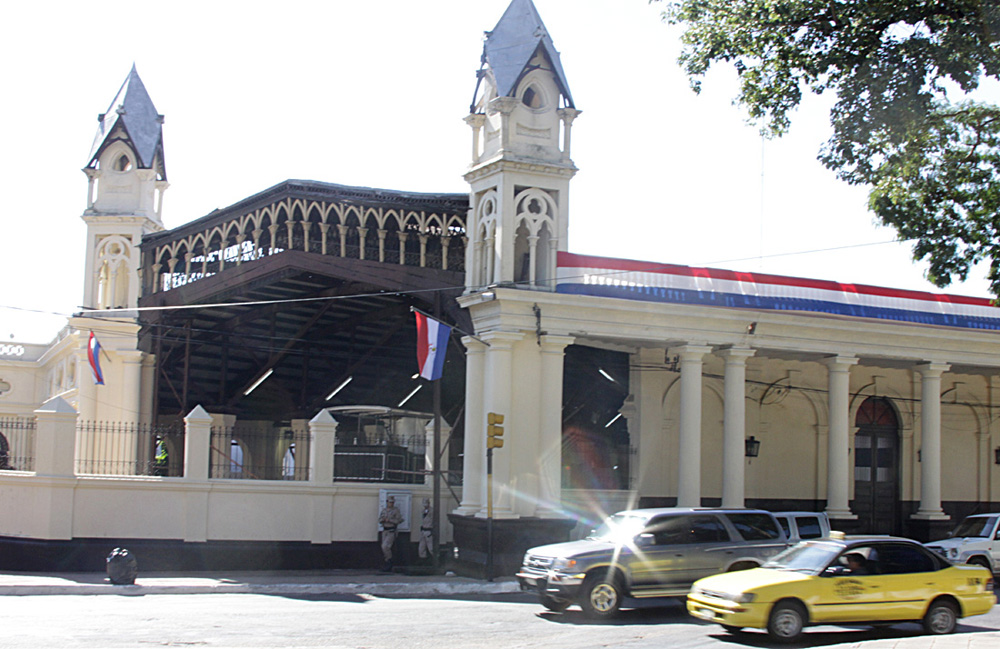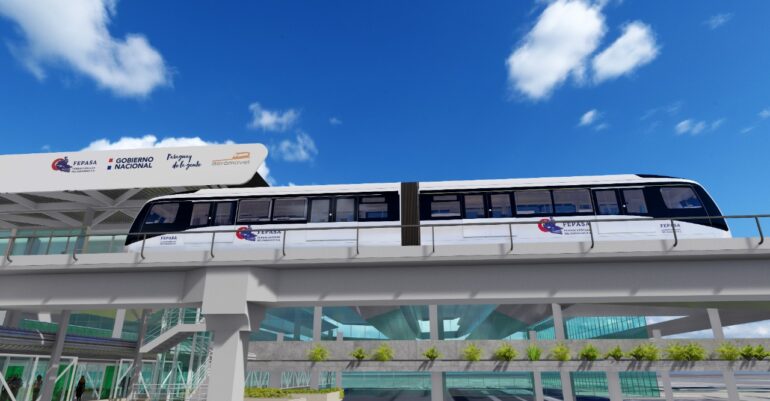The Executive Branch of the Paraguayan Government has presented a bill to Congress that seeks to establish a new regulatory framework for the implementation of a new train route between Asunción and Ypacaraí, which will be powered by renewable electricity, according to the document.
The railway project called “Commuter Train” covers a 43 km stretch between Asunción and Ypacaraí, and is conceived not only as an alternative to traditional urban transport, but as a key infrastructure for regional development and the integration of cities into its route: Asunción, Luque, Areguá, Itauguá and Ypacaraí.
The project aims to modernise public transport services by creating an efficient railway system that is suited to the ever-growing demands of urban areas, according to the arguments of the project presented to Congress.
The project involves the repeal of Law 7237 of 2023, which provided for a sub-concession contract for the project in favor of the Public Agency of the Republic of Korea, Korea Overseas Infrastructure & Urban Development Corporation (KIND).
In this new initiative, the project will be managed by the Ministry of Public Works and Communications (MOPC) and the railway services concessionaire Ferrocarriles del Paraguay SA (FEPASA), with a sub-concession to private sector companies that may be awarded for a maximum period of 35 years, including the construction phase.

According to the project, the selection of the sub-concessionaire will be carried out through a competitive process, based on the principles of economy, efficiency, equality, free competition, publicity and transparency. In the case that foreign companies participate, they must form partnerships with national companies.
The changes proposed in this Bill will “lay the foundations for obtaining the most competitive financing possible, aligning national interests with the principles of transparency, efficient use of resources, security for investors, and the guarantees necessary for the structuring and implementation of the ‘Suburban Train’ project”, according to the Executive Branch.
The project includes both physical and operational infrastructure, including stations, communication and signalling systems, the acquisition of rolling stock, and the release of the land required for its implementation.
President Santiago Peña said that the new proposal to carry out the commuter train project seeks to empower Paraguayan companies and use local knowledge and experience.
“Much of what was thought the project with Korea was going to do, a large consultancy that could cost US$5 million, we have already begun to do with the resources we have and with the knowledge we have,” said the president in statements to the press on Friday.
Using Korea as an example, the development of the Asian country was possible with large projects from the public sector to promote Korean companies. “What I want is for Paraguay to be a power, so I have to use all the available tools, all the experience and internal knowledge so that Paraguay can really accelerate,” he said.
Peña also defended the modality, indicating that the sub-concession is a tool that requires authorisation from Congress to carry out an urgent project. “In a year and three months, this is the first time I have used the urgent treatment because I believe that this is worth it,” he said.
The original project was to be developed with the Korean public agency for infrastructure development, KIND, also under the figure of a sub-concession. The president indicated that the characteristics of the project will be maintained, but instead of Korea, it will be carried out by Paraguay.


